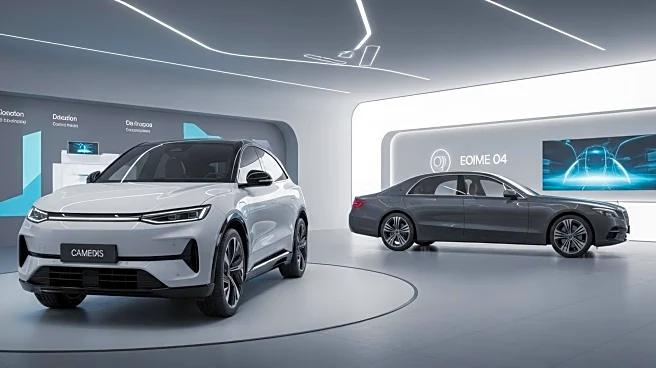What's Happening?
Volvo has announced the end of production for its V90 luxury wagon, marking a significant shift in the company's vehicle lineup. The decision comes as the automaker, owned by Geely, plans to phase out traditional wagons in favor of SUVs and electric vehicles. The last V90 will be assembled in September, with no direct successor planned. Volvo CEO Jim Rowan indicated that the V60, a smaller wagon, will continue production for now, but its future remains uncertain. The company is focusing on electric models, such as the ES90, a fully electric liftback, to replace traditional gasoline sedans like the S90, which will continue in select Asian markets. This strategic pivot aligns with Volvo's global cycle plan, which prioritizes crossovers and SUVs over wagons.
Why It's Important?
The discontinuation of the V90 reflects broader industry trends where consumer preference is increasingly shifting towards SUVs, which offer higher ride heights and perceived safety benefits. This move could impact Volvo's market share in regions where wagons remain popular, such as Europe. However, it aligns with the company's commitment to electrification and sustainability, potentially enhancing its competitive edge in the growing electric vehicle market. The decision may also benefit competitors like BMW, Audi, and Mercedes, who continue to offer wagon models, potentially capturing Volvo's former wagon customer base.
What's Next?
Volvo's strategic focus will likely continue to emphasize electric and hybrid vehicles, with potential new SUV models filling the gap left by the V90. The company may also explore repositioning existing models like the XC60 to appeal to traditional wagon buyers. As Volvo advances its electric vehicle lineup, it will be crucial to monitor consumer response and sales performance, particularly in markets where wagons have historically been popular.










